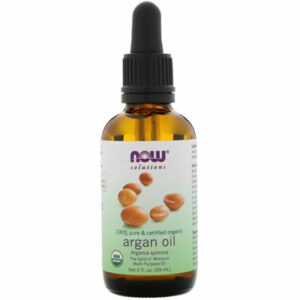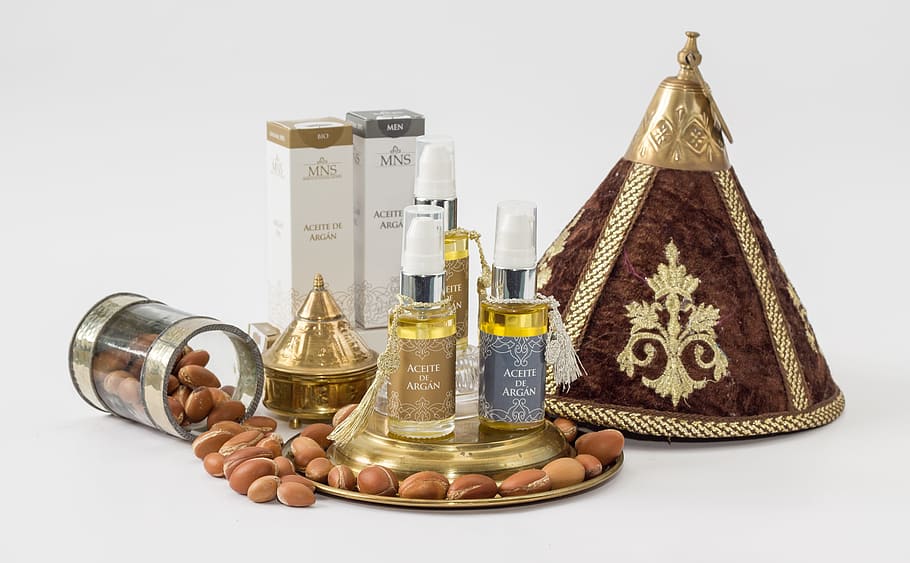Argan oil is natural vegetable oil with high economic value. Do you know what is argan oil benefits and side effects?
The main traditional use of this oil is for edible purposes. It is usually used directly with bread or for cooking at breakfast. In addition, it is also used in traditional medicine and recent hair cosmetics.
What are the benefits of using argan oil? Are there any side effects or contraindications? For details, please refer to the text analysis.
Table of Contents
- What is argan oil?
- What are the proven efficacy (benefits) of argan oil recommended?
- Are there any side effects of argan oil?
- Safety Precautions
- Where to buy the most recommended argan oil?
What is argan oil?
Argan oil is extracted from the unique tree of southwest Morocco: the fruit of the argan tree, because it is rich in unsaturated fatty acids and bioactive substances such as vitamin E and phenolic compounds, it can bring anti-inflammatory and antioxidant benefits.
The argan tree is a multi-purpose tree species unique to Morocco and has an important ecological and socio-economic role in the region.
Depending on the mode of use (cosmetics, haircare, skincare, cooking, etc.), oils and fats are manufactured by different extraction processes, including cold pressing or solvent extraction, so the ingredients are slightly different.
What are the proven efficacy (benefits) of argan oil recommended?
1. Argan oil is beneficial for blood lipid regulation
Plasma lipid participates in all systems of human physiology, and its abundance is affected by the interaction between genetics, diet, and environment.
Among them, cholesterol is an important substance that participates in many functions, such as maintaining cell membranes, making vitamin D, producing hormones, and helping brain cells connect.
However, when cholesterol levels in the blood rise, there are dangerous consequences. Atherosclerosis, in particular, is the leading cause of death in most countries.
A meta-analysis (a total of 5 randomized controlled trials, a total of 292 participants) pointed out that supplementation with argan oil (dose ranging from 17 to 30 ml per day) can reduce total plasma cholesterol compared with the control group, low-density lipoprotein cholesterol, and triglyceride concentration, and increase high-density lipoprotein cholesterol.
*Conclusion: The supplementation of argan oil has positive effects on blood lipid regulation, but it is limited by the small sample size and the test period is too short and other factors still need more research to corroborate.
2. Argan oil benefits knee osteoarthritis
Osteoarthritis is one of the most common diseases that cause disability, mainly due to knee osteoarthritis or hip osteoarthritis.
About 13% of women and 10% of men have symptomatic knee arthritis after the age of 60. Compared with the general population, patients with osteoarthritis are at higher risk of diabetes, cancer, or cardiovascular disease.
A randomized controlled trial (for 8 weeks, with 100 knee osteoarthritis patients) pointed out that oral argan oil (daily dose of 30 ml) can significantly improve the following clinical evaluation measurement parameters compared to the untreated control group. Such as the visual analog score pain item (VAS of pain), the knee WOMAC score scale pain and function items, walking distance, and patient pain index.
*Conclusion: Oral argan oil may be helpful to improve the symptoms of knee osteoarthritis, but it is limited to a small number of samples, and more research is still needed to further verify.
3. Argan oil improves skin striae distensae (also known as stretch marks)
Striae distensae, also known as stretch marks, are common dermal lesions caused by stretching of the dermis. They are common in the abdomen and breasts after and during pregnancy.
The acute phase (red stripes) is characterized by erythema, redness, and flattened stretching (in some cases a slight bulge), the lesion is perpendicular to the direction of skin tension, while in the chronic phase (white stripes) the dilated stripes gradually subside, Atrophy, wrinkles, and hypopigmentation appear.
A small study (targeting 22 patients prone to stretch marks) pointed out that the use of creams containing argan oil and emollients can help improve the elasticity of the epidermis.
*Conclusion: The cream containing argan oil may be helpful for the prevention or early treatment of stretch marks, but it is limited to a small number of samples and more research is still needed to further verify.
4. Argan oil is good for skin health
With age, the loss of skin function and structural stability is inevitable, which is the result of internal and external processes, and at the same time leads to the gradual loss of skin integrity, called skin aging.
Intrinsic aging proceeds at a genetically determined rate, which is mainly caused by the accumulation of destructive products of cell metabolism and the increase in cellular biological aging, resulting in rough skin, fine lines, and subcutaneous atrophy.
External aging is mainly caused by exposure to ultraviolet and infrared radiation, pollution, and smoking, superimposed on the internal skin aging, the accumulation of these damages will lead to deeper wrinkles and changes in pigments.
A study (for 60 postmenopausal women) pointed out that whether it is for external or internal use of argan oil, it can restore the skin’s barrier function, maintain the skin’s water-locking ability, and bring beneficial effects on the skin’s moisturizing.
Another study (for 60 postmenopausal women) pointed out that whether it is the topical or internal use of argan oil can help improve skin elasticity.
*Conclusion: Whether it is directly ingested or applied externally to the skin, argan oil may have a positive effect on resisting skin aging, but it is limited to a small number of samples and more research is still needed to further verify.
5. Argan oil is beneficial for burn wound healing
Burn injuries are a serious problem. In the United States, more than 500,000 people seek treatment each year, 40,000 people are hospitalized, and 4,000 people die. The annual cost of treating these burns is estimated to exceed US$1 billion. This does not include disability and Indirect costs of rehabilitation.
Common substances that cause burns are fire, chemicals, electrical conduction, and contact with hot/cold objects. They cause tissue damage through energy transfer, which leads to coagulative necrosis.
An animal study showed that topical argan oil significantly improved the rate of wound healing and contraction in secondary burns compared to the control group.
*Conclusion: Topical argan oil may be helpful for improving wound healing rate, but more human research is needed to support it.
6. Argan oil is good for diabetes
Type 2 diabetes is the most common type of diabetes. It is caused by the gradual weakening of insulin resistance and insulin secretion. The causes include obesity, aging, genetic susceptibility, and lack of exercise.
Sustained overnutrition leads to stable high blood sugar levels, which are harmful to both the large blood vessels and the microvascular system. This effect is called glucose toxicity.
An animal study pointed out that argan oil has the effect of regulating blood sugar and reducing insulin resistance.
*Conclusion: The intake of argan oil may be helpful for diabetes, but more human research is needed to support it.
Are there any side effects of argan oil?
For most people, argan oil is generally considered safe.
When applied topically, argan oil may irritate the skin, leading to the formation of rashes or acne. To avoid this, apply a small amount to your hands before topical application, let it absorb, and observe any abnormalities. Skin irritation or any redness, please stop using it.
When taken orally, the reported side effects or adverse reactions include nausea, bloating, loss of appetite, excessive salivation, erythema, urticaria, throat discomfort, or diarrhea. In very rare cases, it may cause confusion and sleep difficulties, General malaise, excitement, depression, and restlessness (these phenomena are mostly related to allergic reactions), if the aforementioned symptoms appear, stop taking it immediately and seek medical attention.
Safety Precautions
1. Do not use for pregnant women and lactating women (because the relevant safety is unknown).
2. Do not use if the liver and kidney function is poor (because the relevant safety is unknown).
3. Do not use it if you have been allergic to nut foods. It may induce allergic reactions. In rare cases, argan oil can cause rashes, itchy skin, redness, allergic reactions, and even breathing difficulties.
4. In order to maintain the quality of the oil, please store it in a cool and dark place.
5. There have been rare cases of men with allergic rhinitis and conjunctivitis after smelling argan oil.
Where to buy the most recommended argan oil?
In recent years, food safety problems in various countries have exploded, and it is not healthy but black-hearted products that everyone spends on. Therefore, European and American products with relatively strict quality control have become popular products.
And iHerb.com is a large-scale medical cosmetics e-commerce company in the United States. It has a high satisfaction rate of 97% in the evaluation of Google customers. It provides global home delivery so that you can buy it without risking buying fakes through purchasing high-quality health products.

